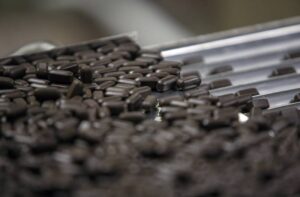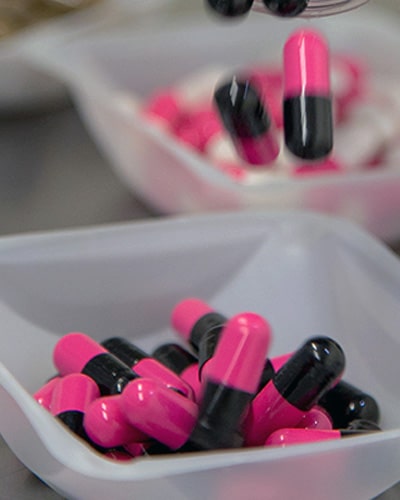The supplement industry is booming, and tablet supplements remain one of the most popular forms of dietary products. As a tablet supplement manufacturer, ensuring high-quality production, regulatory compliance, and customer satisfaction is crucial for success. Whether you’re a startup or an established brand, understanding the key factors that contribute to effective tablet manufacturing can set you apart in this competitive market.
In this guide, we’ll explore the essential aspects of becoming a successful tablet supplement manufacturer, including formulation, production processes, quality control, and industry best practices.
Understanding Tablet Supplement Manufacturing

Tablet supplements are a convenient and precise way to deliver nutrients, vitamins, and herbal extracts. A tablet supplement manufacturer must have expertise in:
- Formulation Development: Creating the right blend of active and inactive ingredients to ensure efficacy and stability.
- Ingredient Selection: Choosing high-quality raw materials that meet regulatory standards.
- Dosage Accuracy: Ensuring each tablet contains the exact amount of active ingredients for consistent results.
The manufacturing process involves blending, granulation, compression, and coating—each step requiring precision to produce effective and safe supplements.
Key Steps in Tablet Supplement Production
A successful tablet supplement manufacturer follows a structured production process to maintain quality and efficiency. The key steps include:
1. Raw Material Sourcing
High-quality raw materials are the foundation of effective supplements. Manufacturers must source ingredients from trusted suppliers who comply with Good Manufacturing Practices (GMP).
2. Blending & Granulation
Ingredients are mixed uniformly to ensure consistency. Granulation may be used to improve flowability and compressibility before tablet formation.
3. Compression & Tablet Formation
The blended powder is compressed into tablets using specialized machinery. The correct pressure and tooling must be applied to avoid defects like capping or chipping.
4. Coating (If Required)
Some tablets receive coatings to improve taste, protect ingredients, or control release rates. Common coatings include sugar, film, or enteric coatings.
5. Quality Testing & Packaging
Every batch undergoes rigorous testing for potency, dissolution, and contamination before being packaged in secure, tamper-evident containers.
Quality Control & Regulatory Compliance
A reputable tablet supplement manufacturer must adhere to strict quality control measures and regulatory standards, including:
- GMP Certification: Ensures that manufacturing processes meet FDA (or relevant authority) guidelines.
- Third-Party Testing: Independent labs verify ingredient purity and product safety.
- Stability Testing: Confirms that tablets retain potency under various storage conditions.
- Microbial Testing: Ensures products are free from harmful bacteria and contaminants.
Non-compliance can lead to recalls, legal issues, and damage to brand reputation, making quality control a top priority.
Choosing the Right Manufacturing Partner
Many brands outsource production to a tablet supplement manufacturer to save costs and leverage expertise. When selecting a manufacturer, consider:
- Experience & Reputation: Look for manufacturers with a proven track record in tablet supplements.
- Regulatory Compliance: Verify GMP, FDA, or NSF certifications.
- Customization Options: The ability to create unique formulations, dosages, and coatings.
- Scalability: The manufacturer should accommodate small batches and large-scale production.
- Transparency: Willingness to provide lab test results and production documentation.
A reliable partner ensures high-quality products that align with your brand’s vision.
Innovations in Tablet Supplement Manufacturing
The supplement industry continuously evolves, and leading tablet supplement manufacturers adopt new technologies to stay competitive. Some innovations include:
- Advanced Coating Techniques: Time-release and enteric coatings improve absorption.
- Plant-Based & Clean-Label Tablets: Meeting demand for natural, allergen-free supplements.
- Effervescent & Chewable Tablets: Alternative formats for better consumer experience.
- Sustainable Manufacturing: Eco-friendly processes and biodegradable packaging.
Staying updated with trends helps manufacturers meet consumer expectations and regulatory changes.
Common Challenges in Tablet Manufacturing & Solutions
Even the best tablet supplement manufacturers face challenges. Here’s how to address them:
1. Ingredient Stability
Some nutrients degrade during processing. Solutions include:
- Using stabilized forms of vitamins (e.g., coated vitamin C).
- Adding antioxidants to prevent oxidation.
2. Tablet Hardness & Dissolution Issues
Poor compression can lead to tablets that are too hard (slow dissolution) or too soft (crumbly). Proper granulation and machine calibration prevent these issues.
3. Regulatory Changes
Staying compliant requires continuous monitoring of FDA, EU, or other regional regulations. Partnering with experts in regulatory affairs helps navigate updates.
4. Supply Chain Disruptions
Diversifying suppliers and maintaining raw material inventory reduces production delays.
The Future of Tablet Supplement Manufacturing
The demand for dietary supplements is rising, and tablet supplement manufacturers must adapt to:
- Personalized Nutrition: Custom-formulated tablets based on individual health needs.
- Smart Tablets: Integration with digital health trackers for dosage monitoring.
- Sustainable Practices: Reducing carbon footprint through green manufacturing.
Manufacturers who embrace innovation and quality will lead the industry.
Conclusion
Becoming a successful tablet supplement manufacturer requires expertise in formulation, production, quality control, and compliance. By focusing on high-quality ingredients, advanced manufacturing techniques, and consumer needs, manufacturers can produce effective, safe, and market-leading supplements.
Whether you’re launching a new brand or improving an existing product, partnering with a skilled manufacturer ensures your tablets meet the highest standards. Stay ahead of industry trends, invest in quality, and prioritize regulatory compliance to build a trusted supplement brand.

